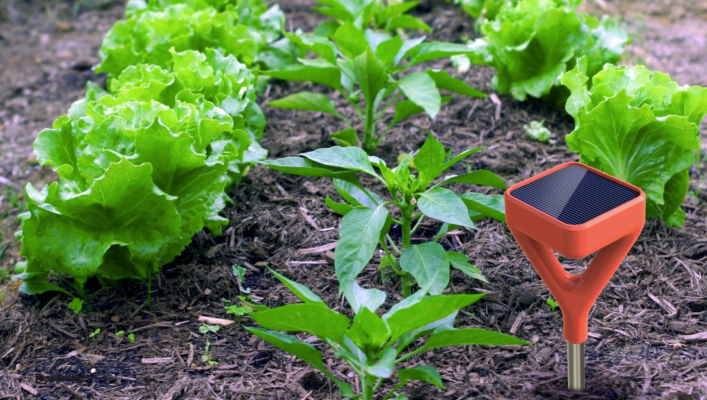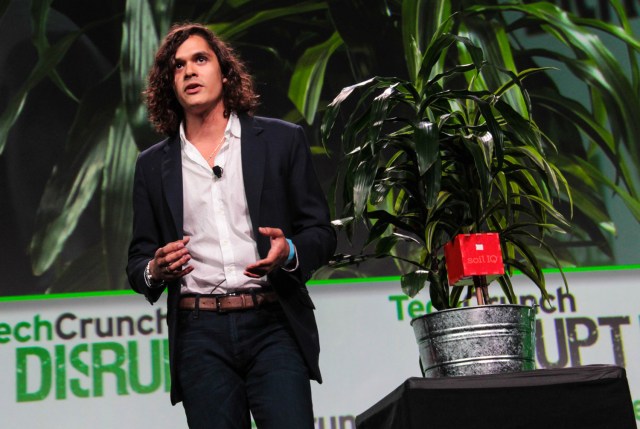Soil IQ is a company that’s bringing the “Internet of things” trend to urban and rural farming.
They’re building a probe that streams soil fertility and weather data back to a paired app. Founded by a Princeton grad and soil scientist who has worked with hundreds of Kenyan farmers to increase crop yields, Soil IQ’s mission is to help people to grow food more sustainably.
“The reality in this country is that most of our food is produced on factory farms,” said CEO Jason Aramburu. “They’re great for producing corn, soybeans and grains, but not so good for producing healthy food.”
In response, Soil IQ has built a wireless soil sensor for small gardens and farms to help regular people grow a healthier supply of fruits and vegetables. Their probe is powered by a solar panel so it can run indefinitely. They’re planning on retailing it for about $49 to both consumers and larger partners.
Then, not only are they targeting U.S. consumers, the company has a dual mission. They’re also working with one of their investors, Orange Telecom, to help deploy these probes to farmers in East Africa.
Aramburu previously started an organization called re:char where he worked with more than 1,300 Kenyan farmers to increase their yields.
But now he says he’s trying to focus on food production for the 100 million households in the U.S. So he shifted into building Soil IQ. The probe can track and stream soil nutrient content, pH, temperature, moisture and light data. They’ve built an analytics platform that makes recommendations to home gardeners about how to optimize seed selection, fertilization and watering.
It can work with either soil-based or hydroponics gardens and either food or medicinal crops. They’ve even rigged it to send SMS or Twitter alerts when plants need attention.
They also have a big ace in the pocket through a partnership with Yves Behar, the famed industrial designer behind FuseProject and chief creative officer behind Jawbone. He’ll help with fashioning Soil IQ’s app and product.
The business model has a number of different angles. Not only is there the hardware revenue, Soil IQ could also license out their dataset, assuming enough people use it to produce interesting data on which crops grow well in different environments. If they also build up enough of a consumer base, they could also earn affiliate revenue from promoting other products like organic fertilizer or seeds.
The company has raised about $200,000 from Orange and other angel investors.

